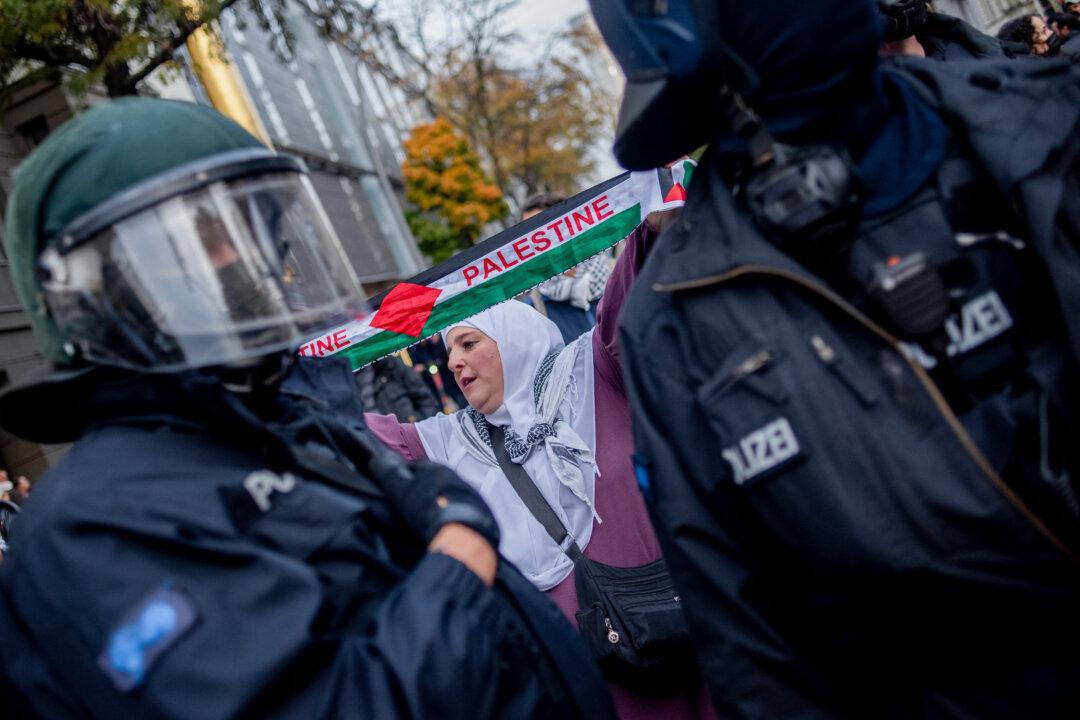German authorities are seeking to deport four foreign nationals, including three European Union citizens and one American, over alleged criminal offenses at pro-Palestinian protests in Berlin.
On March 31, media outlet The Intercept named the four people slated for deportation as U.S. citizen Cooper Longbottom; Poland’s Kasia Wlaszczyk; and Shane O’Brien and Roberta Murray, who are both from Ireland.





